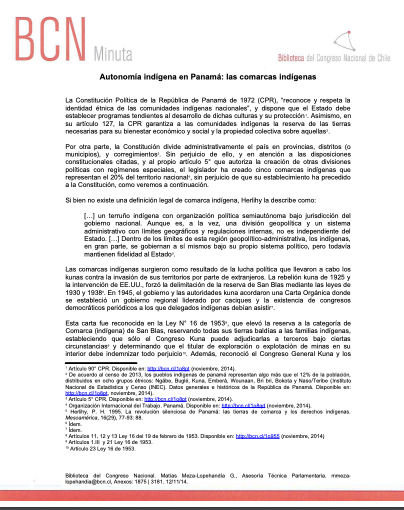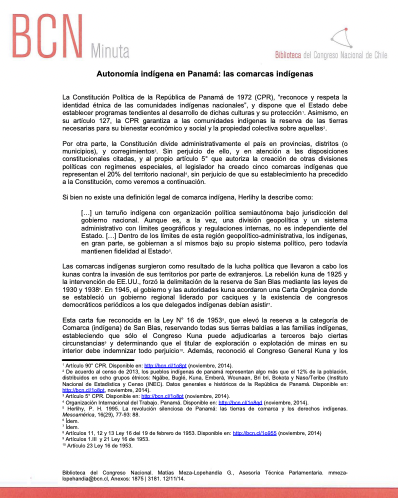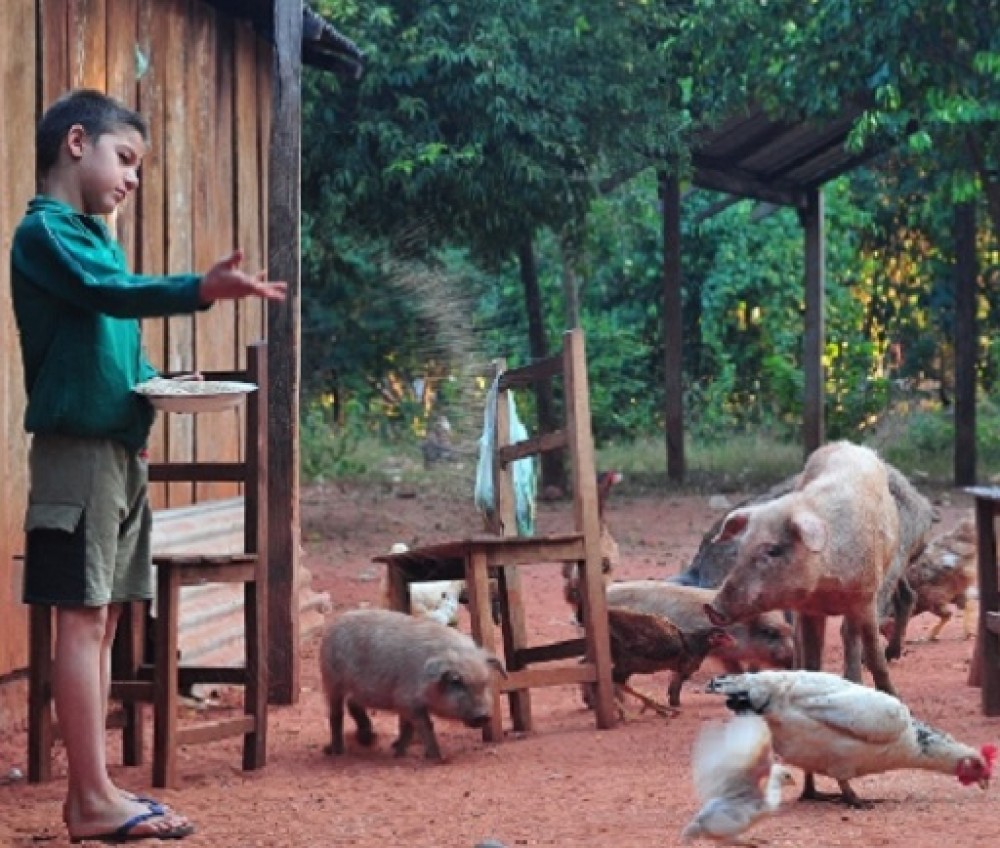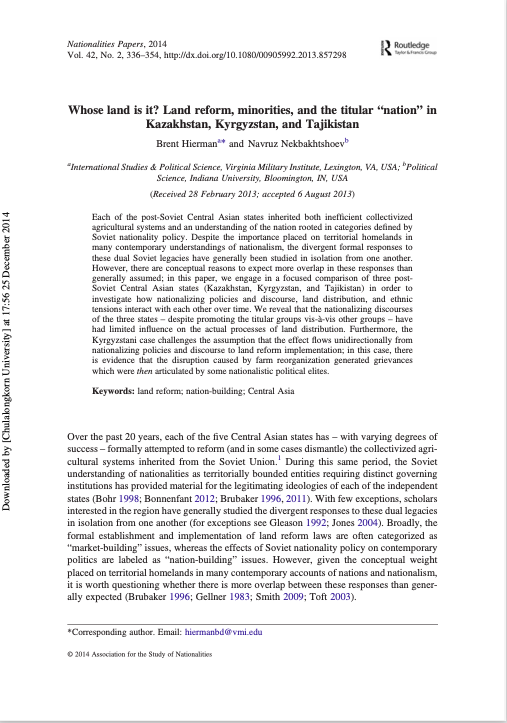Autonomía indígena en Panamá: las comarcas indígenas
La Constitución Política de la República de Panamá de 1972 (CPR), “reconoce y respeta la identidad étnica de las comunidades indígenas nacionales”, y dispone que el Estado debe establecer programas tendientes al desarrollo de dichas culturas y su protección. Este texto revisar la normativa legal que reconoce las comarcas indígenas como territorios indígenas autogobernados.










